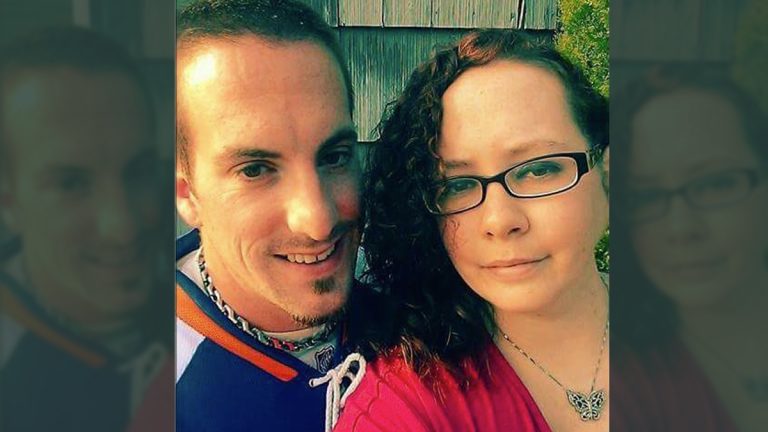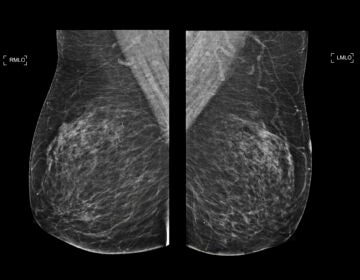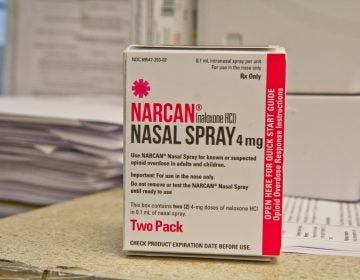New Jersey mom takes story of daughter’s opioid death, role of drug company, to Congress
Listen
Sarah Fuller (right)died on March 25, 2016 after becoming addicted to a fentanyl pain killer. (Photo courtesy of Deborah Fuller)
Deborah Fuller is nervous. The Camden County, New Jersey, resident is going before Congress next week to testify at a hearing on the role drugmakers played in fueling the opioid epidemic.
“I have never been to D.C. and visited Congress before, let alone have to testify in front of it,” she said.
Fuller, who’s 60, wants others to avoid the fatal trap her daughter fell in.
Sarah Fuller died last year, engaged, at age of 32, after a drug representative from Insys Therapeutics allegedly pushed her to take an extremely potent pain medicine, Subsys. It’s a form of fentanyl that’s only meant for breakthrough cancer pain, which the daughter did not have.
“I think she was killed,” Deborah Fuller said. “She should have never been on Subsys to begin with because it’s for breakout cancer pain as we learned after she died and not for chronic pain.”
Sarah Fuller was on disability in 2015 when she went to her doctor in Cherry Hill. She’d been through two major car accidents years before. She had chronic pain. She’d long stopped working as a health aid because of the heavy lifting. Her mom said she had also stopped taking opioids because she had developed an addiction.
An audio recording first obtained through a court subpoena from her lawyer, Richard Hollawell, and now released in a report by Senator Claire McCaskill, reveals some of the details of the pharmaceutical marketing practices Fuller and now Congress are going after. The recording captures the conversation between a drug rep from Insys claiming to represent the doctor’s office, directly talking to her daughter’s pharmacy benefits manager in order to move forward the prescription.
“That was their scheme, they were doing this throughout the country,” Hollawell said, adding that typically companies also paid doctors to prescribe the medicine. “A drug company is not allowed to interact with the patient’s health insurer and pitch as to why something should be paid for, especially its own product.”
Sarah Fuller overdosed a year and a half ago at their home in Stratford, N.J.
“I can’t tell you how angry that made me, to actually hear it [the audio recording],” Fuller said. “Because my daughter didn’t have to die. She didn’t have to die.”
The state medical board has since suspended the doctor, Vivienne Matalon’s license. Fuller’s lawsuit against the drugmaker, Insys, is ongoing. Last year, the FBI arrested several executives from Insys for paying doctors to prescribe Subsys.
Fuller’s story appears to be sounding an alarm in Congress, as McCaskill continues an investigation into possible fraudulent and manipulative practices at nine pharmaceutical companies, including Endo and Teva, which have bases in the Philadelphia region.
Insys issued a response to that accompanying report, stating that such activities relate to former employees and that the company has transformed its employee base.
For Deborah Fuller her message next week to Congress is clear, but she’s still reminded daily about her daughter’s absence, driving past her grave each day to and from work. August 18 was especially painful. It marked the day that Sarah was supposed to have gotten married.
“That one was a tough one. Because it reminds you of how much you’ve lost with her not being here.”
WHYY is your source for fact-based, in-depth journalism and information. As a nonprofit organization, we rely on financial support from readers like you. Please give today.




